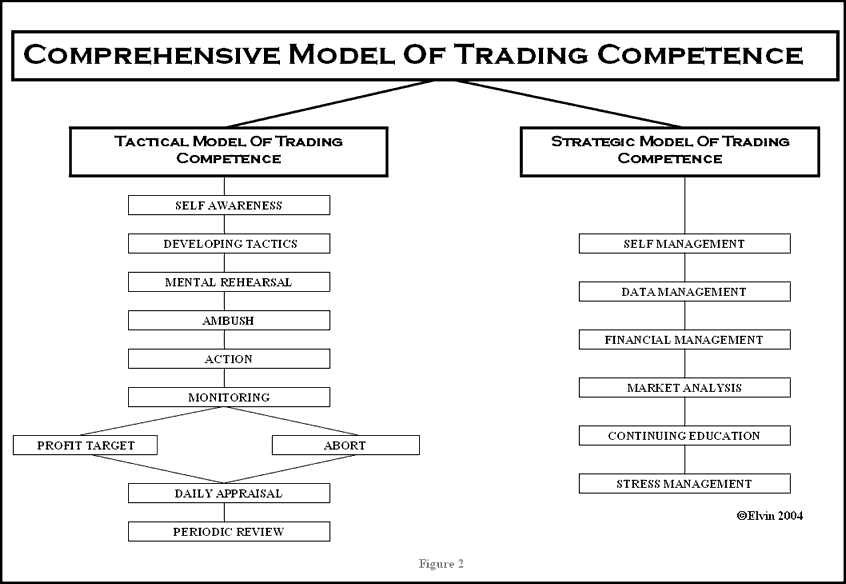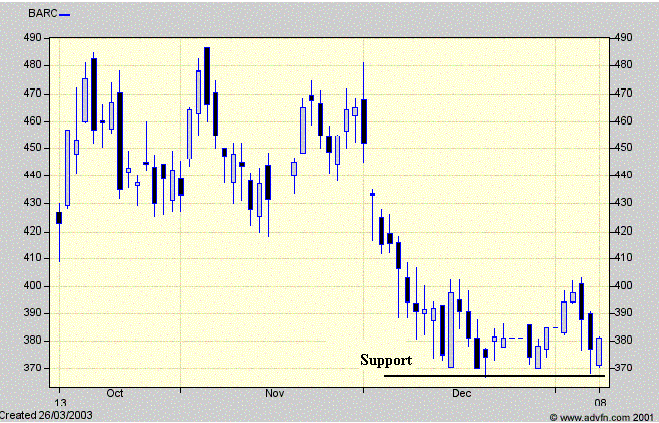You are using an out of date browser. It may not display this or other websites correctly.
You should upgrade or use an alternative browser.
You should upgrade or use an alternative browser.
Articles
There are literally thousands of traders out there who have brains, motivation, money (but not for long), big computers, trading software, newsletters, trading magazines, courses and more, but who can't make money. I call them "Johnny and Jane", because they're typical and engage in losing behaviors common to so many traders. The sad but true fact is that in spite of all the advances we have made, too many traders still fail. But why? Why is it that "Johnny and Jane Can't Make Money in the Markets" consistently or successfully? Here are some of my thoughts. I hope they help you in your trading plan. Hopefully you won't end up like Johnny and Jane or if you're already a Johnny or a Jane (or both) my thoughts will help you improve your...
Throughout the years I've been trading and writing I've often written about mind set - having the right frame of mind for your trading so you become a winner.
I've stated that it is our job to trade "futures," not "histories."
The future is the next bar on your chart. You can't possibly know how it will develop, how fast prices will move, or where it will end up. Since none of us know where the very next tick will be, it's impossible to know where the tick after that will be, or the tick after that, etc. All we know at any one time is what we're seeing. Interestingly, what we're seeing may not be true.
Trouble With Data
If we are day trading, we are not sure that what we're seeing is a bad tick, especially if it is not too far...
This article is essentially for anyone starting out in the markets, but the question of why one is trading is relevant at all times.
The question as to what motivates the individual to start trading or continue trading is very important because many reasons are poor reasons and the so-called "motivators" can contain hidden traps.
Often people trade for a number of reasons, not just the obvious one of wanting to make money, and frequently these other reasons are at a sub-conscious level, and would not normally be disclosed if someone asked the question "Why do you trade?"
Below is a list of motivators. This is designed to be fairly comprehensive and typically three or four from the list will apply to each individual. Clearly not...
Are you a beginner? Before you start, have you got what it takes?
It is apparent that when starting out in the adventurous worlds of financial trading, that the complete novice and beginner can, within minutes of his first post on T2W, trot down the wrong road, due in no small part to the advice so readily given by enthusiastic members imparting their own beliefs and experiences. Just today a newcomer posed the question: I'm new, what trading platform should I have? Within minutes a reply was posted by a prolific poster, buy XYZ platform it's only ££s and you can get data feed at only ££ per month!
The thread continued, try this, and try that, and I imagined this person already starting to think that if they can get a great trading...
As a new trader, or as one who has gained a new vigor, to be successful we must understand that the road ahead of us will not be easy, nor will it be a quick journey. The path is filled with daily challenges that will test our skills, both technical and mental.
In fact, most traders do not even progress past the start up phase. They fail to:
Learn to take a loss
Learn to be wrong
Learn that in fact, to succeed, this business is VERY Difficult!!
The one constant fact that all successful traders say is true, including Borselinno, Fisher, Jones and more, is that it will take time to become a successful trader. Borselinno says at least a year, Fisher says maybe 2 years, but they all say this business has nothing to do with instant...
In order to succeed as a professional trader, it is often said that the aspirant must treat trading "like a business". As with many of the clichéd phrases that litter the metaphorical trading floor, the importance of this statement is often overlooked, or the meaning misunderstood.
The following article by Tim Wilcox aims to address these problems by examining some of the ways in which a trader might go about achieving this vital goal.
It is divided into two sections: a general overview of what constitutes a trading plan and why it is prudent to have one, followed by a detailed analysis of the various aspects that should be considered during its creation, for example, the importance of self-awareness, discipline and risk management...
Most "superstar" traders do not trade with mechanical systems; they trade with the most powerful force known to man: Vision.
Their experience has led them to an understanding, or "unlocking" of the Mystery of Market Behavior. They act proactively and intuitively. They use the most powerful computer with a unique operating system: Their brain and solid paradigms.
As a business consultant, it was often my responsibility to instill corporate paradigm shifts through Change Proficiency Maturity profiles and other means. A paradigm is like your "Mental operating system" much like Windows XP is to your Pentium 4.
A paradigm can be defined as:
One that serves as a pattern or model
A set of assumptions, concepts, values, and practices that...

Emotional Intelligence and the Trader
Why is it that 90 percent of traders who trade the markets fulltime fail to earn an adequate return even when using systems claiming 70 percent accuracy? Perhaps it is because traders do not recognize the importance of the Paramouncy Principle.
The Paramouncy Principle suggests that you are the most important variable in the trading equation. Not you, the dispassionate arbiter of
technical and fundamental analysis, but also you, the thinking, feeling, sentient being with all your human foibles, hopes and aspirations. Most traders lose money because they do not have an understanding of the markets or of themselves.
They trade without method, strategy or discipline. They fall prey to powerful...
In life, we are each ultimately responsible for our own actions. The markets are no different. We are responsible for our own success and / or failure and the degree to which we are successful.
Winning at a career in trading is no different. To ensure a profitable future, one must be proactive. Preventing failure is an important part of that process. If you find yourself saying:
...or any number of negative mental messages, you are heading down the path that leads to failure.
Having been a successful business consultant and having traded for many many years, I have found several recurring characteristics and traits of people who thought they would hit a home run but who struck out in their attempt. Many of them stood with their bats...
At some point, if they last long enough, all traders discover that successful trading is not the inevitable result of a good trading strategy or system. If all we needed was a good system or indicator we would all be successful traders. Yet clearly we are not, far from it, there are very few traders making their living consistently from the markets.
Technical analysis is a vast and well researched subject. Many minds have poured their heart and soul into searching for the holy grail of trading: the system, strategy or indicator that will yield to them unlimited wealth and glory. Yet with all this depth of knowledge readily available, trading profits remain as elusive as ever.
System Vendors and the Holy Grail
If we were to take a...

In part 1 of this article, I looked at some of the basic elements of trading, including chart reading and money management. In this second part, I will consider some other essential issues, such as the need for discipline in trading and the importance of practice and planning.
The Importance of Discipline
I have previously mentioned why it is important that you DON'T move a stop-loss to increase risk, and I wanted to go through the "what if" scenario of letting a stop run.
We'll take this example from Barclays from January 2003.
Here we have a nice double (or even triple) bottom on support, and a clean bounce up. You take this long entry with a tight manual stop at 360.
This is what happens over the days to come...
Brilliant...
